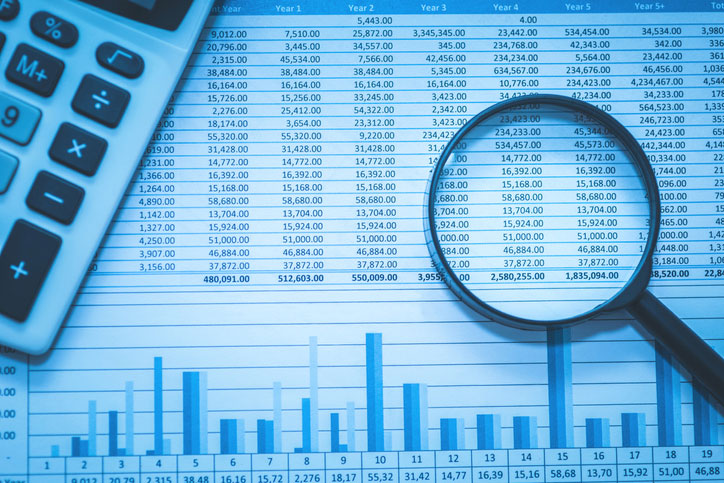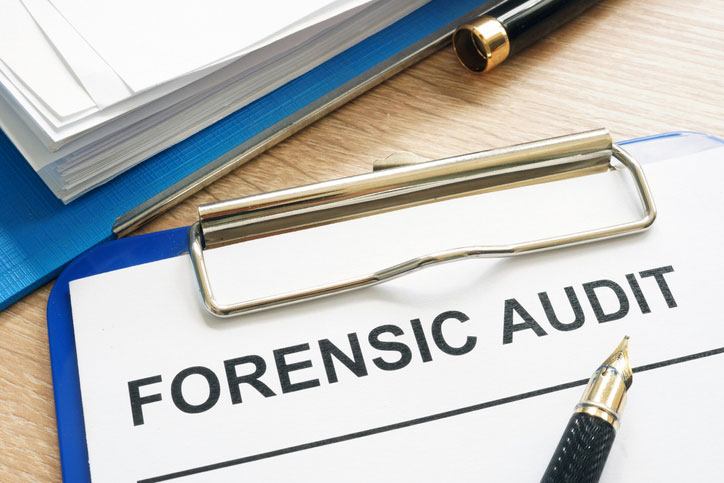
In This Guide:
In the complex intersection of accounting and criminal justice, forensic accountants serve as financial detectives who uncover fraud, trace hidden assets, and provide crucial testimony in legal proceedings. This specialized career path requires a unique combination of analytical expertise, investigative skills, and unwavering ethical standards.
The demand for forensic accounting professionals continues to grow as financial crimes become increasingly sophisticated. Whether investigating corporate fraud, supporting divorce proceedings, or tracking money laundering operations, forensic accountants play a vital role in maintaining financial integrity across industries.
Following the money trail requires more than accounting knowledge—it demands investigative instincts, unwavering ethics, and the ability to see beyond surface-level financial data to uncover the truth.
What is Forensic Accounting?
Forensic accounting combines traditional accounting principles with investigative techniques to examine financial records for evidence of fraud, embezzlement, or other financial crimes. These specialized professionals work at the intersection of accounting, auditing, and legal investigation.
Real-World Applications
The Enron scandal of 2001 exemplifies the critical need for forensic accounting expertise. When the energy giant filed for bankruptcy despite claiming $101 billion in revenue, forensic accountants uncovered years of fraudulent accounting practices and offshore accounts that concealed massive losses. This investigation led to significant regulatory reforms and underscored the crucial role of forensic accountants in safeguarding investors and employees.
Beyond corporate fraud, forensic accountants play a crucial role in criminal investigations across various contexts. In one notable case from April 1997, a forensic CPA’s analysis of financial records proved instrumental in solving a murder case by establishing the financial motive behind the crime, demonstrating how financial expertise can support justice in unexpected ways.
Primary Responsibilities
Forensic accountants typically divide their professional duties into two main areas:
Litigation Support: Serving as expert witnesses, providing testimony that explains complex financial crimes to courts and juries, and helping lawyers obtain critical supporting documents during trials. They also assess financial damages in cases of fraud or breach of contract.
Investigative Accounting: Conducting detailed examinations of financial records to uncover white-collar crimes such as insider trading, embezzlement, and theft. Their work extends beyond purely financial crimes to support investigations into organized crime, human trafficking, and other criminal enterprises by tracing money flows.
Education Requirements
Becoming a forensic accountant requires a structured educational pathway that builds foundational accounting knowledge before specializing in forensic techniques. Most professionals begin with a bachelor’s degree in accounting or finance; however, dedicated forensic accounting programs are becoming increasingly common.
Undergraduate Education
A bachelor’s degree provides the fundamental knowledge necessary for forensic accounting work. Core coursework typically includes:
While specialized forensic accounting programs exist at the undergraduate level, they remain relatively rare. Students interested in this career path often supplement their accounting major with coursework in criminal justice, psychology, or business law to gain broader perspective on investigative work.
Graduate Education
Many forensic accountants pursue master’s degrees to deepen their expertise and meet CPA licensure requirements. Graduate programs offer more specialized forensic accounting concentrations, including courses on:
- Fraud examination techniques
- Digital forensics and cybercrime investigation
- Expert witness testimony preparation
- Advanced interviewing and interrogation methods
- Money laundering detection
- Asset recovery procedures
Master’s programs in forensic accounting typically require 30-36 credit hours and can be completed in 12-24 months of full-time study. Many programs offer flexible scheduling options for working professionals.
Essential Skills
Forensic accounting demands a unique skill set that combines technical accounting expertise with investigative acumen and strong communication abilities. Professionals must master both hard and soft skills to excel in this challenging field.

Technical Skills
Critical Soft Skills
Beyond technical competencies, successful forensic accountants demonstrate:
- Ethical Integrity: Maintaining objectivity and professional standards despite pressure
- Attention to Detail: Identifying subtle discrepancies in vast amounts of data
- Analytical Thinking: Connecting disparate pieces of financial information
- Communication Skills: Explaining complex financial concepts to non-experts
- Professional Skepticism: Questioning surface-level appearances and assumptions
- Persistence: Following investigations through lengthy and complex processes
Career Paths
Forensic accountants find employment across diverse sectors, each offering unique challenges and opportunities for professional growth and development. Understanding these various career paths enables aspiring professionals to target their education and skill development more effectively.
Public Accounting Firms
Major accounting firms, including the Big Four (Deloitte, PwC, Ernst & Young, and KPMG), maintain dedicated forensic services divisions. These firms offer comprehensive training programs and exposure to diverse cases across industries. Entry-level positions in public accounting provide excellent foundations for a career in forensic specialization.
Government Agencies
Federal agencies employ forensic accountants in critical investigative roles. The FBI, CIA, and ATF utilize financial professionals to trace criminal activities. At the same time, regulatory bodies like the SEC and the Consumer Financial Protection Bureau rely on forensic expertise to enforce financial regulations. Government accounting positions often offer job security and provide meaningful opportunities for public service.
Corporate Sector
Many corporations hire in-house forensic accountants to develop fraud prevention programs and conduct internal investigations. These positions often involve:
- Implementing internal control systems
- Conducting compliance audits
- Investigating employee misconduct
- Supporting merger and acquisition due diligence
- Managing whistleblower programs
Law Enforcement and Legal Services
State and local law enforcement agencies increasingly employ forensic accountants to support complex financial crime investigations. Additionally, law firms retain forensic accounting experts for litigation support in cases involving financial disputes, divorces, and criminal prosecutions.
Specialized Industries
Professional Certifications
Professional certifications validate expertise and enhance career prospects in forensic accounting. While CPA licensure provides a strong foundation, specialized forensic credentials demonstrate advanced competencies.

Certified Public Accountant (CPA)
The CPA license remains the gold standard in accounting credentials. Requirements typically include:
- 150 semester hours of college education
- Passing the four-part CPA examination
- Meeting state-specific experience requirements
- Completing continuing professional education
Many forensic accounting positions require or strongly prefer CPA licensure, as it demonstrates comprehensive accounting knowledge and professional commitment.
Certified in Financial Forensics (CFF)
Offered by the American Institute of Certified Public Accountants (AICPA), the CFF credential specifically validates forensic accounting expertise. Requirements include:
- Active CPA license in good standing
- AICPA membership
- 1,000 hours of forensic accounting experience
- 75 hours of forensic-related continuing education
- Passing the CFF examination
Certified Fraud Examiner (CFE)
The Association of Certified Fraud Examiners (ACFE) offers this widely recognized credential. The CFE certification focuses on fraud prevention and detection across various contexts. Eligibility requirements include:
- Bachelor’s degree or equivalent professional experience
- Two years of fraud-related professional experience
- ACFE membership
- Passing the four-part CFE examination
Additional Certifications
Salary Information
Forensic accounting offers competitive compensation that reflects the specialized skills and expertise required for this field. Salaries vary significantly based on location, experience, certification status, and employment sector.
National Salary Overview
According to the Bureau of Labor Statistics, accountants and auditors earn competitive salaries across the United States, with forensic accountants typically commanding premium compensation due to their specialized expertise.
Geographic Salary Variations
Location significantly impacts earning potential for forensic accountants. Major financial centers and high-cost areas typically offer higher compensation to offset living expenses.
Industry-Specific Compensation
Forensic accountants with specialized certifications and advanced degrees typically earn 15-25% more than those with basic qualifications. Experience in high-profile cases or niche industries can further increase earning potential.
Setting up fraud prevention measures requires extensive training, thorough interviews, and a dedicated budget allocation. However, considering the SEC collected a record-breaking $6.4 billion in penalties in 2022, the investment in forensic accounting expertise proves invaluable for organizations seeking to maintain compliance and ethical standards.
May 2024 Bureau of Labor Statistics salary data for Accountants and Auditors reflect state and national data, not school-specific information. Conditions in your area may vary. Data accessed June 2025.
Frequently Asked Questions
How long does it take to become a forensic accountant?
Becoming a forensic accountant typically takes 6-8 years: 4 years for a bachelor’s degree, 1-2 years for a master’s degree (optional but recommended), plus 1-3 years of general accounting experience before specializing in forensics. Additional time may be required for CPA licensure and specialized certifications.
What’s the difference between a CPA and a forensic accountant?
While many forensic accountants are CPAs, forensic accounting is a specialization focusing on investigating financial crimes and fraud. CPAs handle general accounting, tax, and audit services, while forensic accountants specifically investigate financial discrepancies and provide litigation support. The CPA license offers a strong foundation for forensic specialization.
Is forensic accounting a good career choice?
Yes, forensic accounting offers strong career prospects with 6% job growth expected through 2031. The field combines accounting expertise with investigative work, offering diverse opportunities in law enforcement, corporate fraud prevention, and litigation support. Competitive salaries and intellectual challenges make it attractive for analytical professionals.
What skills are most important for forensic accountants?
Critical skills include analytical thinking, attention to detail, strong communication skills, proficiency in accounting software and data analysis tools, understanding of legal procedures, and adherence to unwavering ethical standards. Technical accounting knowledge must be paired with investigative instincts and the ability to clearly explain complex findings.
Can I become a forensic accountant without a CPA license?
While possible, most employers strongly prefer or require CPA licensure for forensic accounting positions. Alternative certifications, such as the Certified Fraud Examiner (CFE), can help, but the CPA remains the gold standard in the field. Some entry-level positions may not require a CPA, but advancement typically depends on obtaining a CPA license.
What types of cases do forensic accountants typically handle?
Forensic accountants investigate various financial crimes, including embezzlement, securities fraud, money laundering, insurance fraud, and tax evasion. They also support civil litigation in divorce proceedings, business valuations, bankruptcy cases, and contract disputes. Their expertise extends to preventing fraud through the development of internal controls.
How much can forensic accountants earn in their first year?
Entry-level forensic accountants typically earn between $50,000 and $65,000 nationally, with higher salaries in major metropolitan areas. Those joining Big Four firms or federal agencies may start at $60,000 to $70,000. Location, education level, and certifications have a significant impact on starting salaries.
What industries hire the most forensic accountants?
Major employers include public accounting firms (especially the Big Four), federal agencies (such as the FBI, IRS, and SEC), insurance companies that investigate fraud claims worth billions annually, banks that monitor financial crimes, and law firms that require litigation support. Corporate internal audit departments also increasingly hire forensic specialists.
How do I prepare for the CFE exam?
The CFE exam covers four sections: Fraud Prevention and Deterrence, Financial Transactions and Fraud Schemes, Investigation, and Law. Preparation typically requires 3-6 months of study using ACFE materials, practice exams, and review courses. Many candidates benefit from joining study groups and attending ACFE training events.








